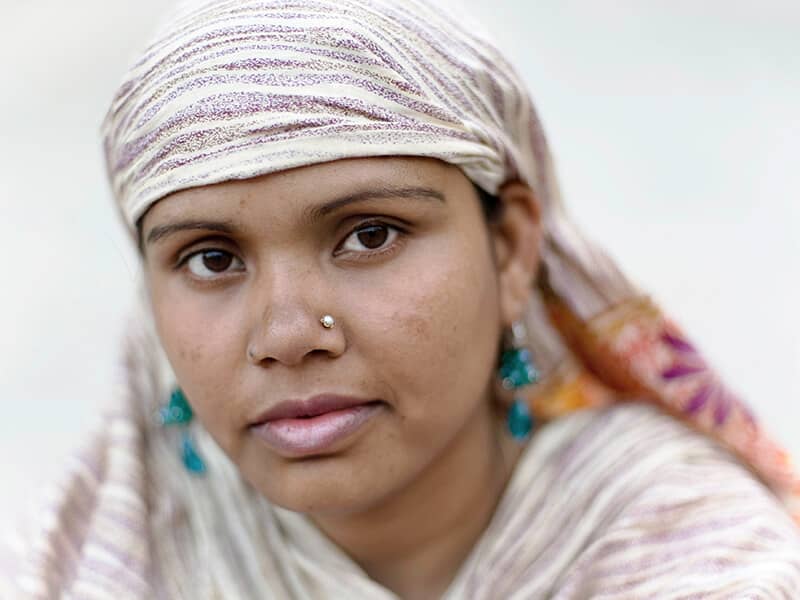"I can't afford not to give my kids a decent education," he said.
The Yahyas found one of the best schools in town: the Islamic School, affiliated with the Islamic Resistance Movement, also known as Hamas. Yahya knows that Hamas has sent suicide bombers into Israel and that it's committed to continuing the Palestinian uprising.
But he believes the school is a striver's dream: 10 or 12 children in each class, parent-teacher conferences nearly every week. "The school is exceptionally good in English; they start in the first grade," Yahya said.
But now the Yahyas might have to go school-hunting again. Palestinian leader Yasser Arafat, under pressure from Israel and the United States to crack down on militants, has begun arresting members of Hamas and closing radio stations, banks and other institutions affiliated with the movement.
Hamas, founded in the 1980s, has long played a dual role in Palestinian society, sponsoring violent resistance to Israel as well as providing private schools and a network of health and social services.
Among Arafat's concerns are the Islamic schools, which his chief of security in the West Bank, Jibril Rajoub, describes as teaching "dangerous things about Islam." He added, "No one has a right to dictate their crazy vision to our children."
Parents fear public takeover
The Palestinian Authority doesn't necessarily want to shut down the school; Rajoub said it wants to keep running the charities, hospitals and schools linked to Hamas, "as long as we can correct them." In the case of the Islamic school, that means replacing its teachers with government instructors, and offering the official curriculum of the Palestinian Authority's Education Ministry, Rajoub explained.
But "if they take it over, it will ruin everything we like about the school, and become just another public school," Yahya said. "And if that happens, my kids are the first ones out."
His wife has taught at a public school in Ramallah. "Miserable," he said. "Forty, 50 students per class." And "the kids there are more desperate, so a lot of the violence is centered there [at the public schools]." Not one of 20 students or parents interviewed planned to stay if the Palestinian Authority took over the school.
It's true that the school's walls are covered with posters glorifying Palestinian militancy, but no more so than at public schools throughout the West Bank and Gaza Strip after 15 months of violent confrontations with Israel. A visit to the school suggests it's a serious educational institution, giving its students aspirations that help keep them off the street.
Principal Mahmoud Masleh, who said he belongs to Hamas, runs the plain, two-story school. Asked to list his priorities, he replied, "English classes; no more than 20 pupils per class; regular meetings with parents; staying on top of the newest computer technology; learning Quran."
The school also makes a point of hiring former prisoners: Five employees are Hamas members who served time in Israeli jails, although only one teaches. Masleh said he does this as charity because the former prisoners can no longer get jobs at government schools.
Security chief Rajoub claimed that as evidence of the school's radicalism. But many Palestinian young men have at one time or another been jailed by Israel. Fighters of intifada idolized
Outside the principal's office hangs a wall-sized collage of martyr posters, pictures of youths killed while throwing rocks or shooting at Israeli soldiers, with gruesome details of death: "Mohammed Ibrahim, 15, hit by a bullet, head damaged, brain spilling out." The propaganda of the Palestinian uprising and resistance to Israel is widely visible, but the same is true in the public schools.
The intifada is jumbled in with everything else. This is illustrated by the items along the wall leading out to the yard: a poster of Tweety Bird, listing the rules for volleyball; an intifada poem for a girl who was shot in the head; a list of suggestions for "better concentration in study"; a mural by first-graders showing children throwing stones at Israeli bombers.
Such mixed messages present an impossible dilemma for Arafat. If he were to close the schools, hospitals and charities that Hamas provides in places where his government has failed to do so, Palestinians would lose those services. And the daily frustrations of life in Israel's Palestinian areas have radicalized many members of the Palestinian middle class. In their comfortable living room, eating sweets and watching cartoons, not one of the Yahyas expressed revulsion or even surprise at suicide bombings.
"When you put someone under pressure, you can't expect them to behave well," said Yahya, a professor of computer science. "Sometimes I think the only rational ones are the suicide bombers."
No dead end for this student
For people like the Yahyas, accustomed to traveling freely abroad, life in the West Bank has an element of the surreal. To avoid the hassle of checkpoints, they almost never stray more than a mile from their house. So the only two places they've been in the last two years are North Carolina and downtown Ramallah.
Adnan said he respects suicide bombers, but that's not the future he wants for son Mohamed, 16, who started his own online business and had a summer internship at Duke University's computer science lab.
"He shouldn't waste a college education on throwing stones at a tank," Adnan said. "He can serve his nation better by teaching computers."
Mohamed agreed: "It's a neat thing to give yourself for your homeland," he said about suicide bombers, but that's not for him. "That kind of thing is for public school kids. I want to go to MIT."

